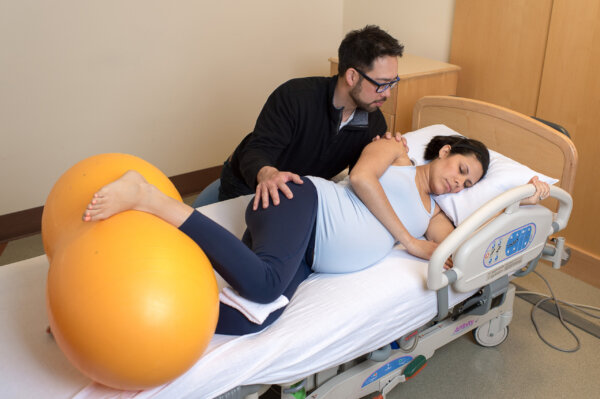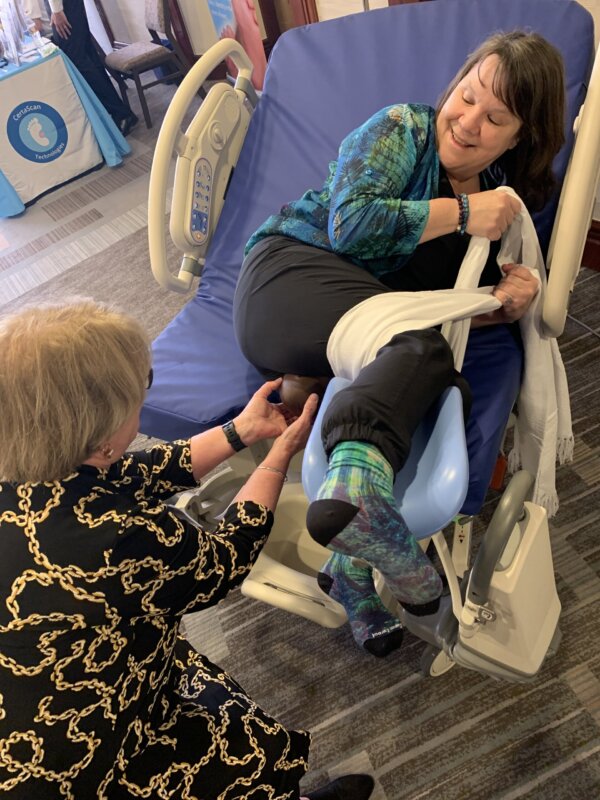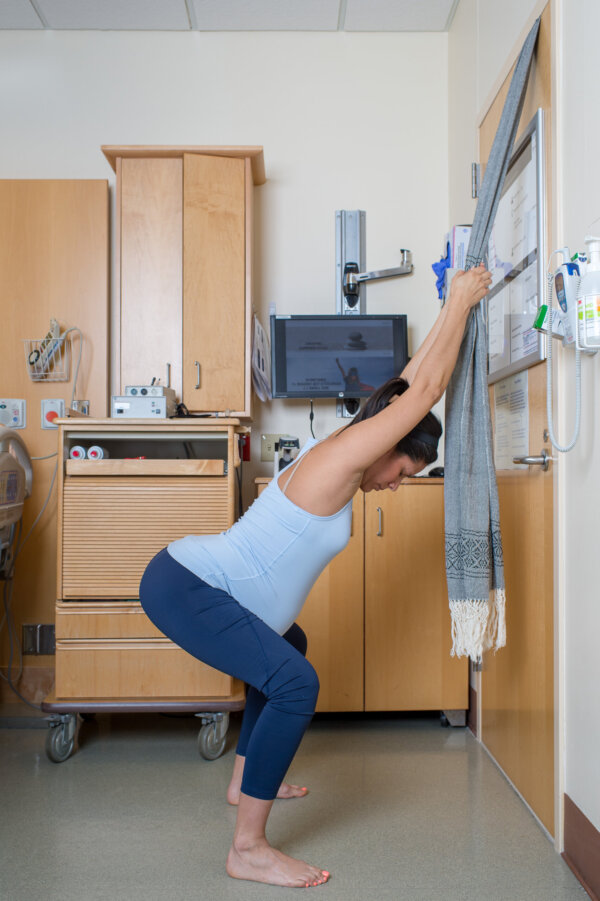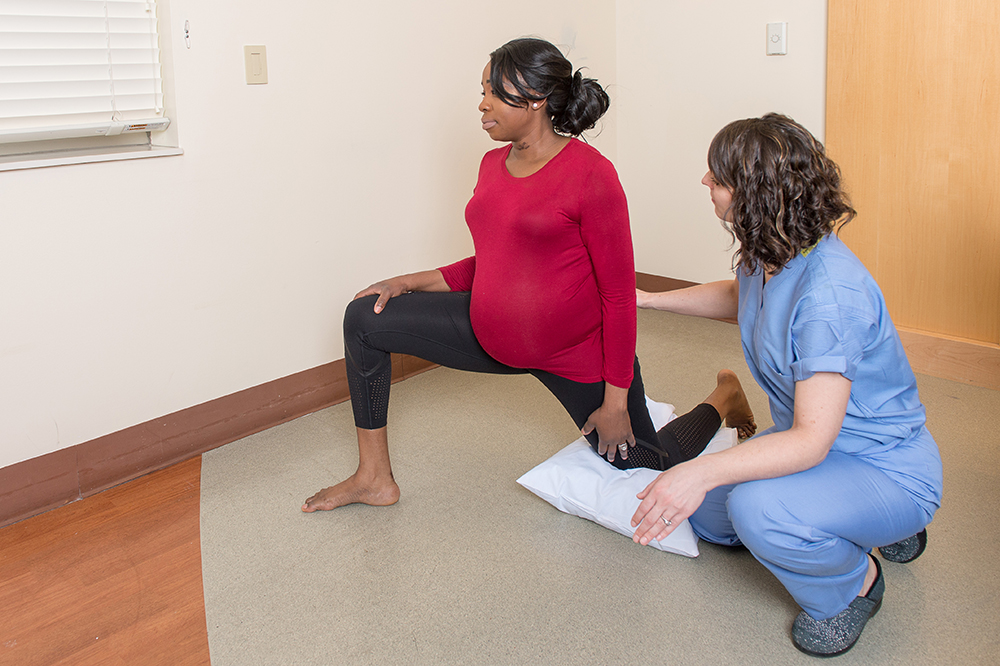When a midwife or family member calls out that they see baby’s head, the birthing energy rises. The work of transition (dilating from 7 to 10) has been completed. There was a period of slower contractions (most likely but not always!) that allowed the pushing phase to begin.
Seeing the head is confirmation baby is low and it’s time to open the bottom of the pelvis. A vaginal exam is another way to tell that baby is low but just a bit too high to see during a contraction.
Once the baby is at least half way down the pelvis or a little more, the suggestions on this page will be helpful.
Certain birth positions add distance between the lower pelvic bones during pushing stage of labor.
The pelvis is mobile. Picking a birth position to open the bottom of the pelvis means less pushing and bruising.
The following positions will help move the bones of the pelvis out of baby’s way better than laying on the bed with knees apart. Pulling the knees apart actually puts the bones closer together at the bottom of the pelvis. Whoops, that’s not helpful! Try these instead:
Rotate the thigh a bit by putting the knees close at the same time the heels are turned outward. Toes point in towards each other but from far apart.

A resting position with internal rotation of the femur is easy with a peanut ball, slightly deflated birth ball, or big pillow between the ankles. Place a little folded washcloth between bare knees for comfort so the skin doesn’t rub and chaff.
This position can be done kneeling and leaning forward or standing and bending the knees while turning the toes in and the heels out.

Tip: Turn the toes in and the heels out to move the bones further out of baby’s way.
Whether standing or lying in bed, tipping the tailbone out to flare the sitz bones will open the way for the baby.

The lower back has an extreme curve. Knees are bent to be helpful. The tailbone is lifted and back arches. Lifting the arms helps raise the rib cage for the large or the posterior baby. When squatting, the way the pelvis is tipped is the same as when emptying the bladder or bowels in a floor toilet or where there is no toilet.
The word anterior means something to Physical Therapists and Yoga teachers. The inside of the top of the sacrum moves forward (anterior). Remember the lower back arches.
Kneel and place one foot flat on the floor at a diagonal to the pelvis. This opens one side of the pelvis.

Wouldn’t this be more comfortable if one could lean over a big birth ball, a couch or bed, or a dependable and strong birth partner? During this kneeling lunge, hands could also be placed on the floor in Running Start for a single contraction or two. The wrist will tire if hands are on the floor very long,
This is a personal favorite (with furniture to lean on).
Lying on the left side, with occasional turns to the right side, is a favorite position of those who are in bed for pushing. Support the upper leg with a peanut ball between the thighs. If you need more room for a particular baby, use the internal rotation of the femur shown above.
Activities for pregnancy comfort and easier birth.